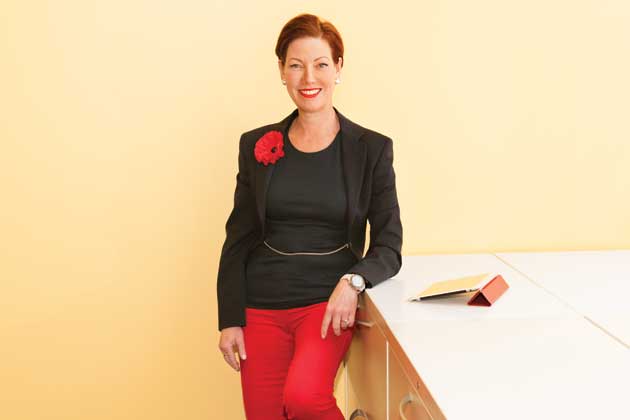The Other Choice

Perhaps a double mastectomy is not always the best option? As Libby Znaimer points outs, it’s gain popularity in recent years but is it acting as a treatment for anxiety?
It’s an unlikely subject for such an entertaining play. Radical, by Charles Hayter, chronicles the uphill battle for the acceptance of breast-conserving surgery as a treatment for early stage breast cancer. The heroine is Dr. Vera Peters, an oncologist at Princess Margaret Hospital from 1958 to 1976, whose work transformed the way both Hodgkin’s disease and breast cancer were treated. Despite her impressive record, she had to battle a skeptical male-dominated medical establishment reluctant to accept her findings. It wasn’t until the 1980s that lumpectomy plus radiation was widely recognized as equally effective. In the ’60s and ’70s, the only option was radical mastectomy, a disfiguring and often debilitating procedure that involves removing the pectoral muscles and all the underarm lymph nodes in addition to the breast. Peters was also a pioneer in considering the psychological well-being of patients and advocating for a woman’s right to be involved in choosing her treatment. She ushered in a revolution in breast cancer care. But the counter-revolution is now underway.
A number of studies show that unnecessary double mastectomies more than doubled in the U.S. between the late ’90s and early 2000s. The most recent, published in JAMA Surgery last May, found that 70 per cent of the women who opt for this preventive procedure had no major risk factors. They had been diagnosed with cancer in one breast and chose to remove both. But the risk of that is tiny unless you have a genetic mutation like BRCA-1 and BRCA-2. And when breast cancer recurs, it is most likely to come back near the original site or metastasize to the bones, lung or liver. Double mastectomy doesn’t prevent that.
A Dana-Farber Cancer Institute study of young women with breast cancer found that while some do overestimate the risk in the other breast, others choose double mastectomy even though they know it will not improve their chance of survival. No surprise. The daughter of friends was diagnosed with ductal carcinoma in situ (DCIS) – a condition many do not even consider to be cancer. It is called Stage 0, and the cure rate is almost 100 per cent. But Maya was in her early 30s and she “never wanted to worry about it again.” So she had both breasts removed. She has a PhD in biochemistry. Her father is a doctor. He cried when he heard her decision.
Then there was a friend’s wife who had a double mastectomy. I assumed her disease was advanced. But my friend confessed that his wife had had Stage 1 and wondered aloud if the surgeon had pushed the aggressive procedure.
Likely, it was the other way around – I also know another woman who spent years trying to convince her doctor to perform it until he relented a decade after her original treatment. According to the JAMA study led by Sarah Hawley, stories like this have “motivated some surgeons to question whether performing an extensive operation that is not clinically indicated is justified to reduce the fear of a recurrence.” So now aggressive surgery is a treatment for anxiety?
Since Angelina Jolie wrote about her preventive double mastectomy in her groundbreaking editorial, “My Medical Choice,” interest has spiked. But she carries a mutation that puts her at a huge risk – unlike most women opting to follow in her footsteps. The choice has become palatable due to advances in breast reconstruction surgery and the fact that plastic surgery of any kind has become acceptable – even an opportunity for improvement! Jolie herself wrote that, “the results can be beautiful.”
Maybe it’s time to heed the other part of Peters’ legacy – doing the minimum treatment necessary rather than the maximum possible. The play on her life brought back memories – I grew up watching my mother cope with the scars and lifelong side effects after her radical mastectomy. Being spared that feels like progress. As a mutation carrier, I had to face the same choice as Jolie. I decided against it, but it was the hardest decision of my life. I wouldn’t wish it on anyone – especially the women who embrace it for all the wrong reasons.
Libby Znaimer ([email protected]) is VP of news on AM740 and Classical 96.3 FM (ZoomerMedia properties).
Zoomer magazine, Oct. 2014 http://credit-n.ru/offers-credit-card/ren-drive-365-credit-card.html http://credit-n.ru/offers-zaim/4slovo-bystrye-zaymi-online.html